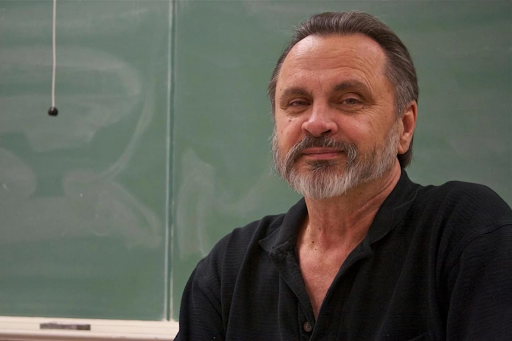Many rumors had been circulating about the upcoming retirement of one of Transy’s longest-serving Professors, Dr. Don Dugi. Dugi has made a name for himself as one of the most well-known and respected professors on campus (or most feared, depending on who you’re asking). After hearing about his pending retirement, I wanted to sit down with Dugi to ask him a few questions about his experience here at Transylvania. The following section contains the interview where he gave insight into his life and his time at the university:
Cam: How long have you been teaching at Transy, and what have you learned from your experience here?
Dr. Dugi: I started teaching here in the fall of 1975. So, next year will be my 50th and final year. As for valuable experiences, my goal as a professor has always been to empower people. One of the things I’ve always done is keep a garden because when it comes to teaching, you can’t take credit for the success of others. But when you garden, with a little luck, you can take some credit for the produce you get from the garden. So whether or not one fully achieves the goal of empowering others is obviously somewhat problematic, but you keep trying. Perhaps a bit like Sisyphus sometimes.
I think one of the great things that has happened here is we still get a fair amount of first-generation college students. And I think one of the problems that first-generation college students have is a lack of cultural capital. I know that there have been a number of faculty members, and I hope I could include myself there, who have helped people who are first-generation develop some cultural capital that will hold them in good stead in whatever occupation they choose after they leave us.
Pride is not a concept I abide by. I always do the right thing because it’s the right thing to do. Not because I have any desire to enhance my reputation or anything else. In fact, I think my reputation here has not always been great among faculty in particular, but perhaps even with the students. I think they have the misguided idea that I’m hard. Well, to some extent, that is true, but I am harder on myself than I am on anybody else. I don’t think you achieve excellence without some demands. If you simply leave things as they are, there’s no improvement. So you have to ask for excellence.
Cam: What would you say has made you the happiest as a professor, whether at Transy specifically or in the general teaching profession?
Dr Dugi: I always said I have a limited range of occupational choices. I couldn’t sell anything because I don’t buy anything, and that limited it severely. I always said I’d rather be helping people escape their ignorance than be a bartender and help them drown their sorrows. I hope that escaping ignorance has been achieved to some extent.
One of the things that I’ve been happy to see is the success of a lot of our former students. By now, as you might guess, some of them are already nearing retirement age. So, hopefully, they’ve had fruitful careers. At any rate, I tend to be a person of duty. I do think, like I said, I do the right thing because it’s the right thing to do. And the idea of happiness or pleasure, the only happiness I would probably consider I have about this, is more in the classical Greek sense, Eudemonia rather than satisfaction. I think that’s probably it, you know.
Cam: Could you explain more what you mean by that? Eudemonia?
Dr. Dugi: Well, it’s a great concept of happiness being fulfilling one’s humanity and making the most of things. Let me give you a formal definition: It has no one-word translation in English, but it’s a combination of well-being, happiness, and flourishing, the ultimate goal of a human being. So, it’s more about fulfilling one’s humanity and one’s purpose in life.
Cam: What has kept you here at Transy rather than somewhere else?
Dr Dugi: Well, there have been a number of factors. Early on, it was the fact that we had moved a few times, and I felt that stability was important for my family. As time went on, there were offers from other places, but things were going well here, and you know, students would sometimes say, “Why aren’t you at Harvard or someplace like that?” And I’d say, because I’m here, my goal was to make this place the best that it could be.
As to personal or academic goals of, you know, enriched reputation or something like that, I just frankly didn’t care. Mostly, over the years, it’s been family. I know I’ve turned down an offer for an honors program at a place that was pretty cold, and my wife doesn’t like cold places. So, those sorts of considerations largely kept me here, I suppose. And when I hit 45 years here, I decided, well, why not make it 50 and then call it a day?
Cam: Do you have any advice for students? How to succeed?
Dr. Dugi: Well, clearly, I think working hard is a good thing. I don’t have a problem with students playing hard, but I think it’s a good idea to work hard first. You can work at play, but you should not play at work.
Cam: As a final, more fun question, who are your favorite artists or favorite bands?
Dr. Dugi: Oh God, I have a lot. I’m an omnivore about music across lots of genres. I mean, I like Vivaldi and others in classical music. One of my favorites always was Leonard Cohen. I still resent the fact that Dylan got a Nobel Prize when Cohen is a better poet and songwriter in general. He actually did literature. Oh, then I always liked Johnny Cash. So, the list is pretty long.



